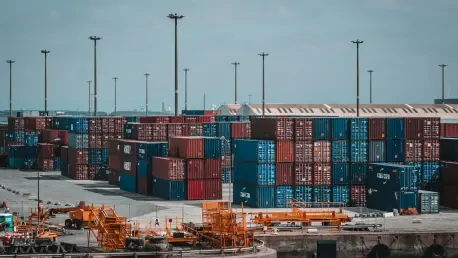In a surprising turn of events, the first five months of 2025 have seen a significant decline in Mexican capital goods imports, reversing a long-standing trend of growth. According to data compiled by Inegi, imports of these essential products for industrial production and modernization fell 11.5% year-on-year, totaling a customs value of $22.922 billion. Over the past years, capital goods, which comprise industrial robots, advanced machinery, and assembly lines, experienced a steady increase. This change contrasts with the last few years, notably achieving substantial growth from 2021 through 2023. By 2024, the total imports of capital goods reached an impressive $61.575 billion, underscoring the importance of this segment in reinforcing Mexico’s position as an industrial hub. However, this decline in 2025 raises questions about its underlying causes and potential ramifications on future industrial capabilities.
Economic Factors and Trade Imbalance
Mexico’s recent decline in capital goods imports reflects shifts in the nation’s economic backdrop, marked by an unsettling trade deficit and varied trends in oil and non-oil trade elements. In 2024, the country faced an $8.2 billion trade deficit, shaped by a reduction in the non-oil trade surplus and insufficient progress in oil trade deficit improvements. Efforts to address the oil deficit showed some progress, but the declining non-oil trade wasn’t enough to offset the overall deficit, influenced further by capital goods import contraction. This trend may be linked to firms adapting strategies amidst economic uncertainty. Fluctuating exchange rates and geopolitical factors likely made imports pricier, compelling businesses to rethink investment and procurement choices. As capital goods are crucial for production and tech growth, a prolonged fall in imports could hamper modernization, challenging industry competitiveness. Addressing these issues demands fostering local production and revising trade policies to facilitate sustainable growth and global competitiveness.









